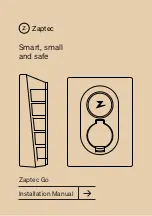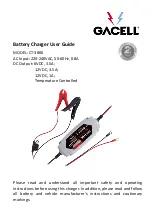
63
To help minimize window condensation, use exhaust
fans vented to the outside, avoid drastic changes in
thermostat settings, do not use “vent-free” heaters
and use window coverings wisely. For example, make
sure to open curtains or blinds during the day to al-
low air to circulate and ward the window surface.
Storage areas are more difficult to condition since the
areas are isolated from the main body of the trailer.
The surfaces of these areas are more at risk for con-
densation and surface mold growth. To minimize this
risk, clean storage areas regularly and allow an air
space between stored items and the exterior wall to
promote air circulation. During prolonged use in very
cold weather, leave cabinets and closet doors par-
tially open to warm and ventilate the interior of stor-
age compartments built against exterior walls. The
airflow will warm the exterior wall surface, reducing or
eliminating condensation and minimizing possible ice
formation.
Unvented combustion equipment, such as propane
stovetops are a source of moisture within the trailer.
For every gallon of fuel consumed, approximately one
gallon of water vapor is evaporated into the air. When-
ever possible, operate an exhaust fan in combination
with the use of any un-vented combustion appliance
within the trailer. Water vapor and other combustion
byproducts should be vented to the exterior of the
trailer. You need to strictly follow the use and mainte-
nance instructions for safe operation of any combus-
tion equipment, particularly un-vented equipment.
The exterior of the trailer is the primary weather and
moisture barrier. Over the life of the trailer, the exterior
will require regular car and maintenance. The shell in-
cludes the roof, sidewalls, windows, doors and under-
floor of the trailer. Particular attention needs to be
devoted to ensure these components are maintained
to ensure a tight barrier against water intrusion.
The exterior should be inspected periodically for
tears, gaps and condition of sealants. Areas that
require maintenance should be resealed utilizing a
similar, high quality sealant as was used during the
manufacture of your trailer.
Particular attention should be devoted to ensure the
slide out is functioning properly. Each time a slide
out is used it should be inspected to ensure proper
operation and sealing. The slide out gaskets should
be inspected to ensure proper sealing when the slide
out is operated.
It is important to remember that the square footage of
a trailer is significantly less than that of a single fam-
ily residence. This fact alone will elevate the relative
humidity because there is less volume of air to help
absorb or dissipate the humidity. For example, show-
ering and cooking create a lot of humidity in a small
area. In these instances, use of an exhaust fan and
opening windows should reduce the relative humidity,
particularly when living in the trailer for an extended
period.
Prolonged use of your trailer in severe environments,
such as in extreme cold or hot-humid climates, will re-
quire extra care and maintenance to avoid moisture-
related issues.
In both extremely cold and hot-humid climates, more
attention needs to be focused on controlling relative
humidity within the trailer. It also may require the use
of a portable dehumidifier to manage relative humid-
ity within an acceptable range.
During those periods when your trailer is not in use,
care must be taken to ensure moisture sources are
addressed. Ideal storage of your trailer would be in
an enclosed climate controlled environment. When
this is not possible, the following steps should be
taken to ensure moisture is controlled:
• Turn off all water sources
• Turn off all combustion appliances
• Drain the water tank
• Drain the water heater
• Open all closets, cabinet doors and drawers
• Close all windows and entrance doors
• Open a vent or window enough to allow for
some limited ventilation air flow, but not so far
as to allow rain or snow to enter
• When storing the trailer in high humidity cli
-
mates (ambient relative humidity is grater than
60% year round), add a dehumidifier drained to
the exterior to control humidity inside the trailer
during storage
It is important that modifications to your trailer be
completed by a qualified service person to ensure
moisture intrusion or accumulation problems do not
occur.
Summary of Contents for 1130
Page 6: ...6 This page intentionally left blank ...
Page 8: ...8 This page intentionally left blank ...
Page 10: ...10 This page intentionally left blank ...
Page 12: ...12 This page intentionally left blank ...
Page 22: ...22 This page intentionally left blank ...
Page 28: ...28 This page intentionally left blank ...
Page 34: ...34 This page intentionally left blank ...
Page 48: ...48 This page intentionally left blank ...
Page 54: ...54 This page intentionally left blank ...
Page 60: ...60 This page intentionally left blank ...
Page 68: ...68 This page intentionally left blank ...
Page 76: ...76 This page intentionally left blank ...
Page 86: ...86 This page intentionally left blank ...
Page 89: ......
Page 94: ...94 This page intentionally left blank ...
Page 113: ...113 SCHEMATICS ...
Page 120: ...120 ...
Page 121: ...121 ...
Page 123: ...123 ...
Page 131: ...131 ...
Page 132: ...132 ...
















































